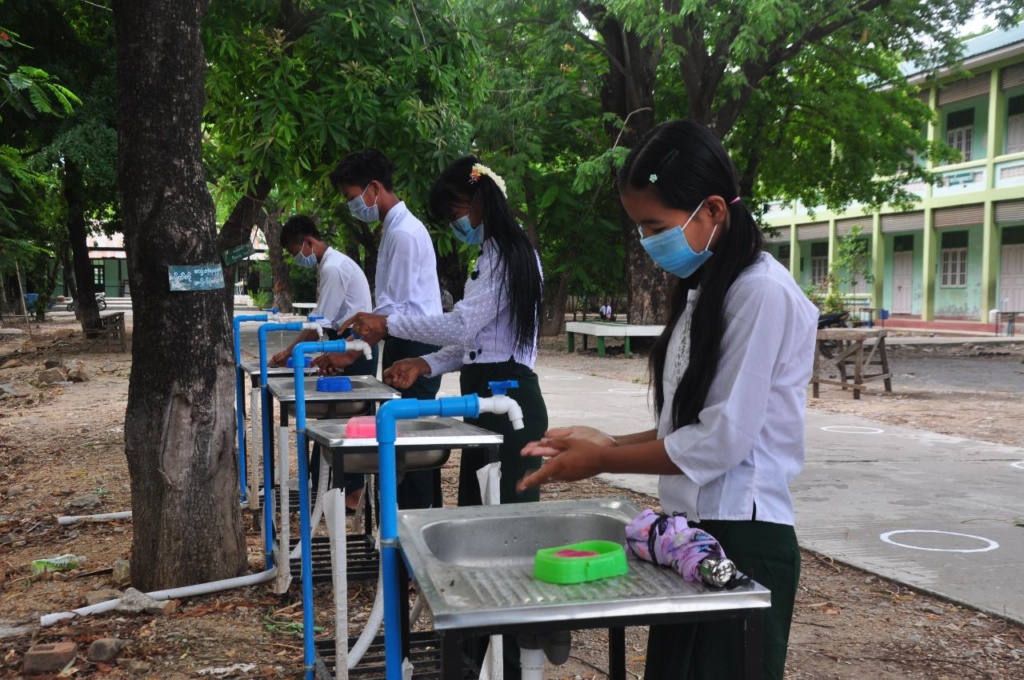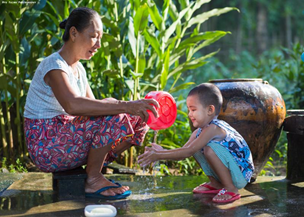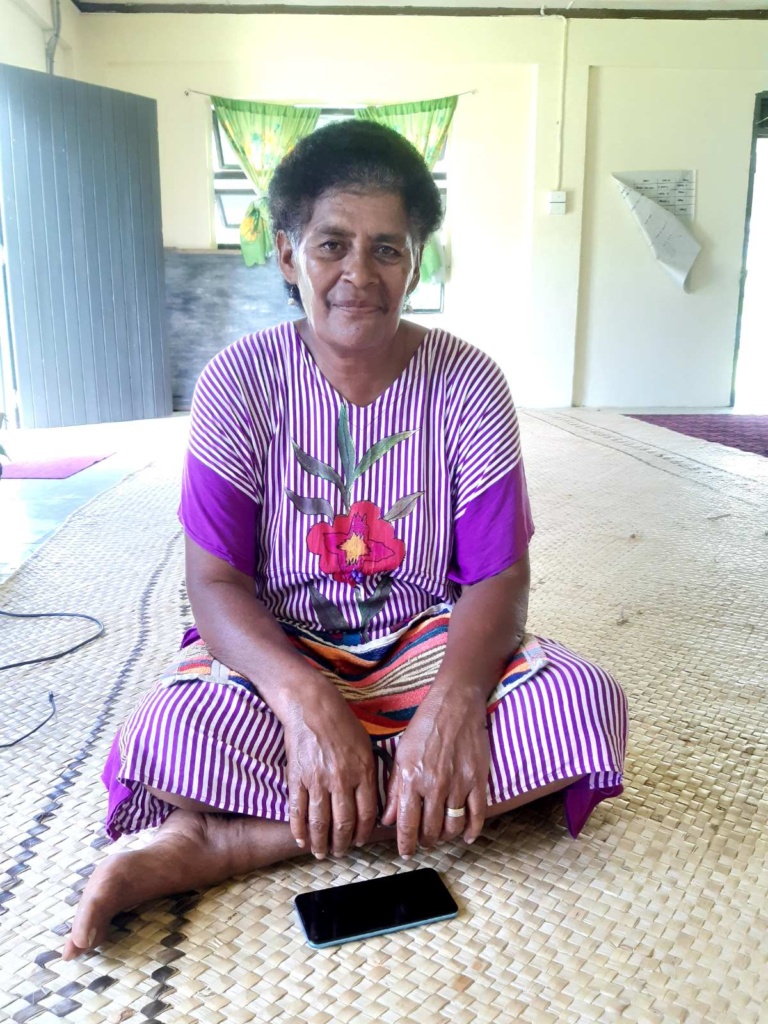A holistic approach to housing, including safe and reliable access to water and sanitation, is critical to addressing the many challenges faced by the families and communities we work alongside.
With many of our usual activities affected by the spread of COVID-19 last year, the communities we serve found ways to adapt, and we have been inspired by their ingenuity, strength and resilience.
Worldwide 663 million people lack access to safe drinking water and 2.5 billion lack adequate sanitation.

Myanmar
In Dala, Yangon, the village committee, together with volunteers and the local project team led the planning, implementation and monitoring of pond improvement, that will pipe water to a water reservoir, benefiting 194 households.
Instead of the usual face-to-face campaign to celebrate Global Handwashing Day, an online handwashing contest was launched that reached almost 40,000 individuals. These are some of the winning entries.
“I am a nurse. Most of our patients lost their jobs. Their lives and families are very bad financially. We are very thankful to Habitat for their support.” – Daw Su Myat Tin
With your help, we support communities to access improved water and sanitation through building toilets and wells, installing drainage and waste management systems, providing water treatment facilities and facilitating hygiene behavioural training.

Fiji
Mere is a health worker in the Malevu Village in Fiji. Like many front-line workers Mere has been protecting her community in their fight against COVID-19. The realities of living through a pandemic can be a worrying and traumatic experience for many people, especially those living in rural and remote locations where access to affordable and quality healthcare is limited.

Since Habitat for Humanity Fiji’s staff held training in Malevu not only has Mere taught her family about handwashing she has led awareness sessions with children and adults throughout the community. Mere has noticed a huge change in handwashing practice from children and adults alike: “Over here everyone didn’t really wash our hands [before] … I now notice adults and even children washing their hands after toilet and eating.”
These projects receive support from the Australian Government through the Australian NGO
Cooperation Program (ANCP).



